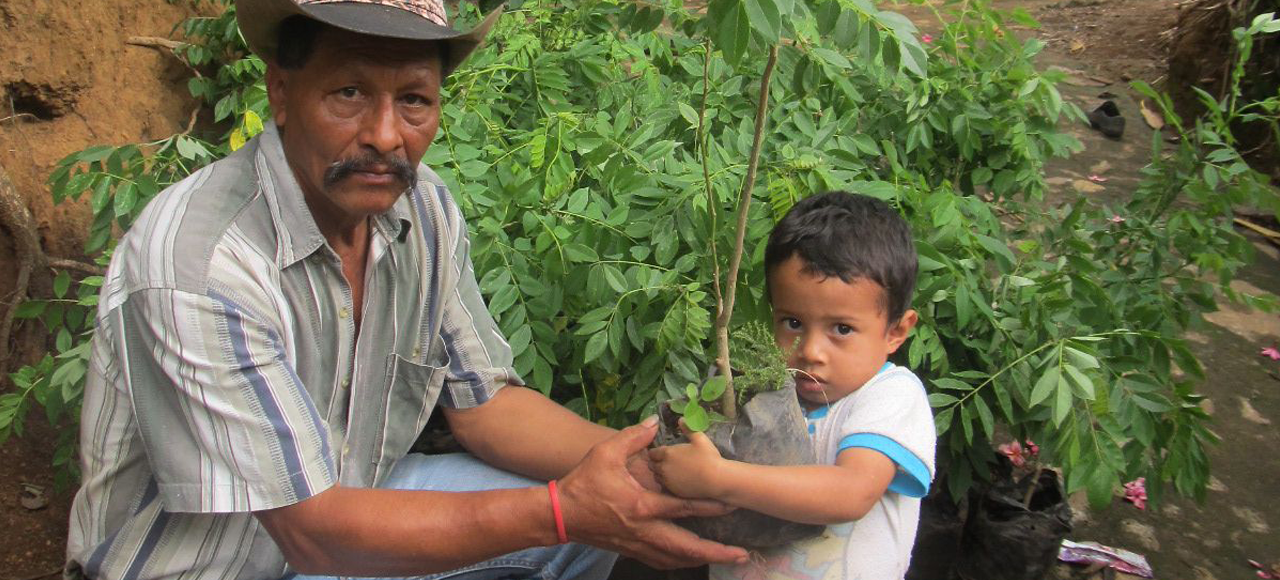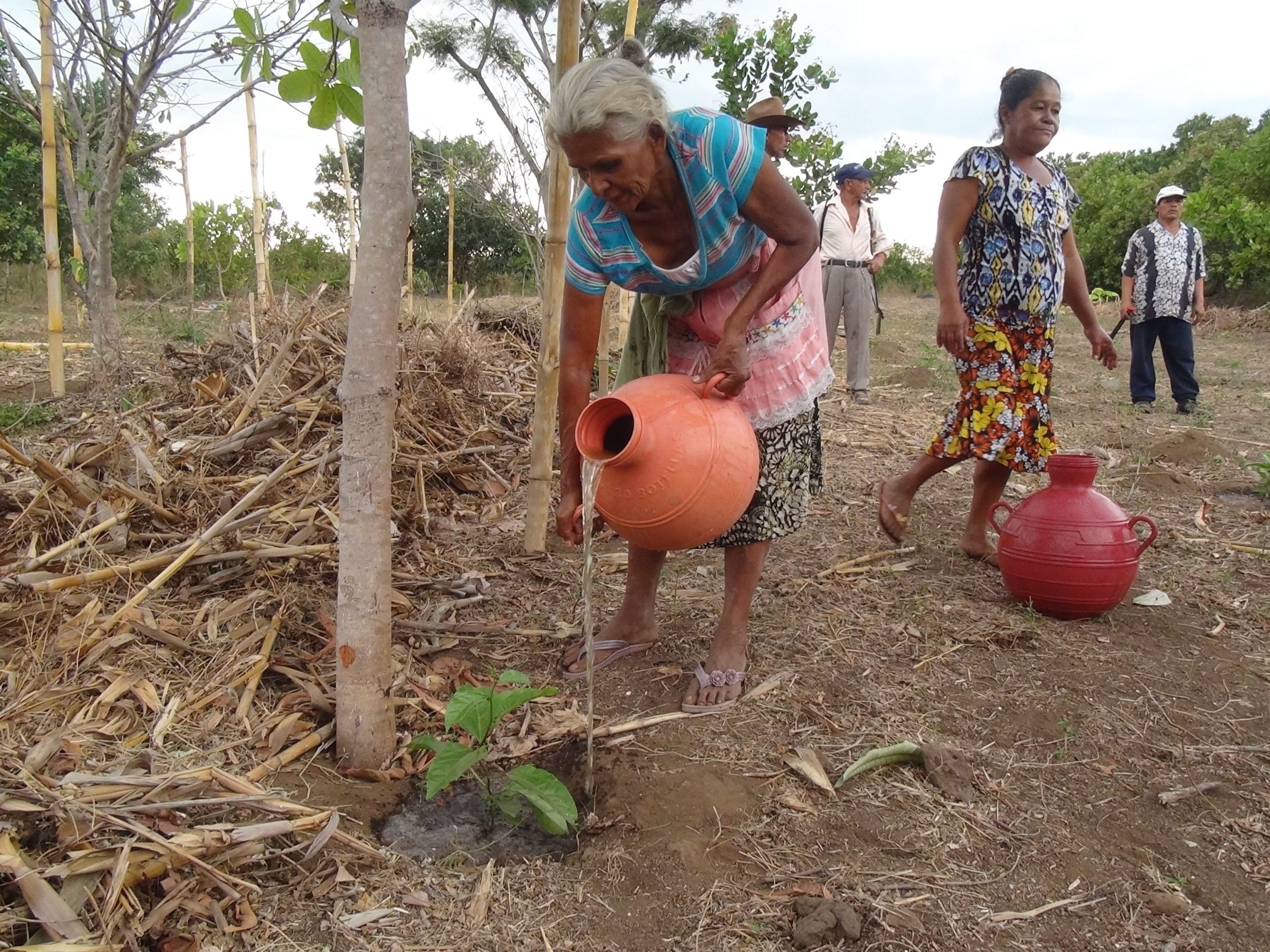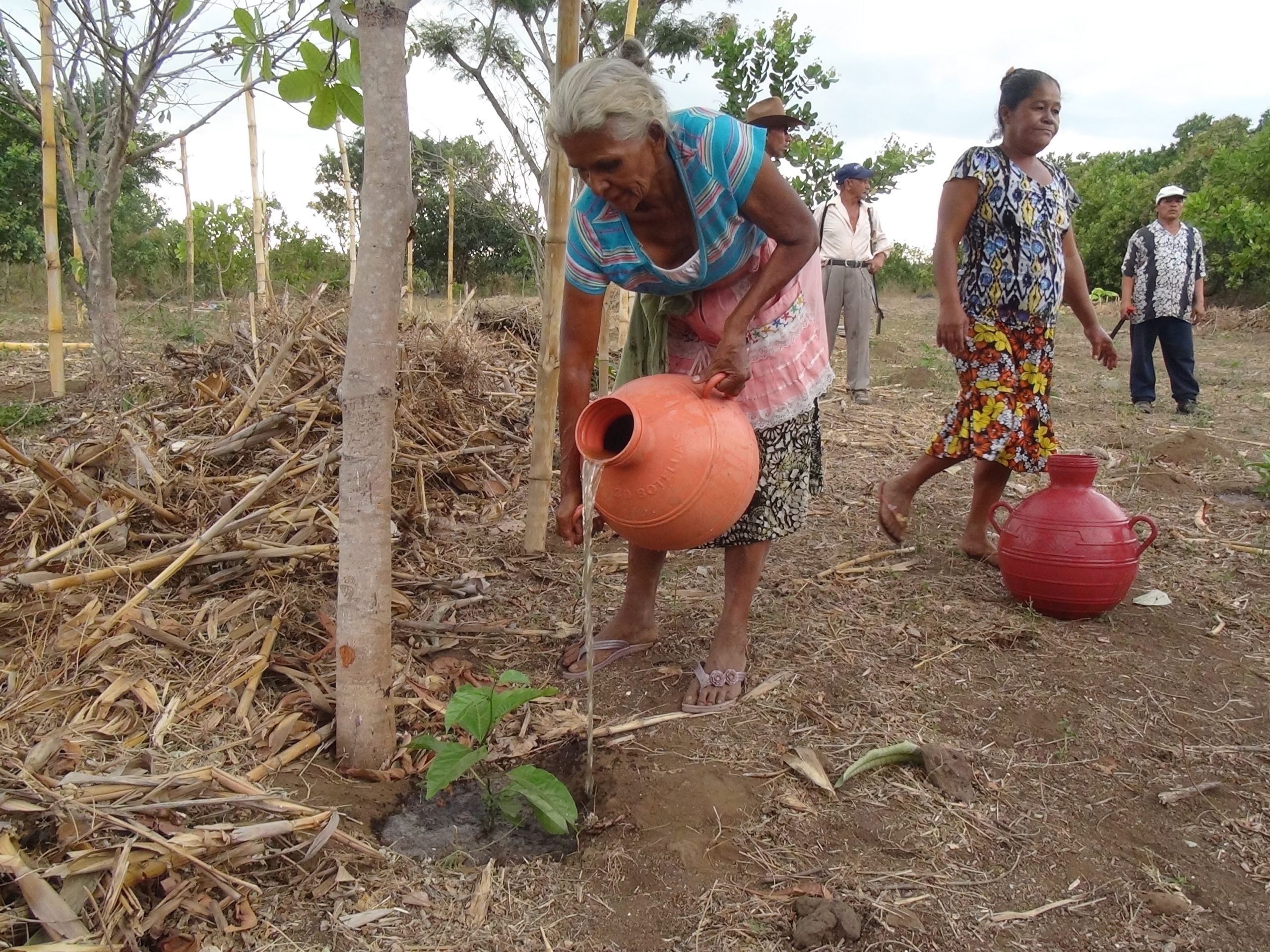Day 12
A tree seedling for reforestation in Central America
 Tree by tree against climate change
Tree by tree against climate change


Tens of thousands of trees are used to preserve water sources and soil in Central America

need
Reforestation of deforested watersheds and hillsides to secure the livelihoods of small farming families in Central America.
activity
Community residents plant 80,000 trees to protect water sources and slopes.
Measurable performance
Number of tree seedlings planted in the watersheds and on the slopes.
Result
After about three years: The planted trees grow well, increase the groundwater level and improve soil fertility.
Systemically relevant impact
Community residents have secure access to water, their crops are more productive and their food security is improved.
background


The good deed
AboutEl Salvador
San Salvador
Capital city

6 486 201
Population
3,798.6
Gross domestic product
per capita per year

Rank 124 of 189
Human Development Index
(Human Development Index)



